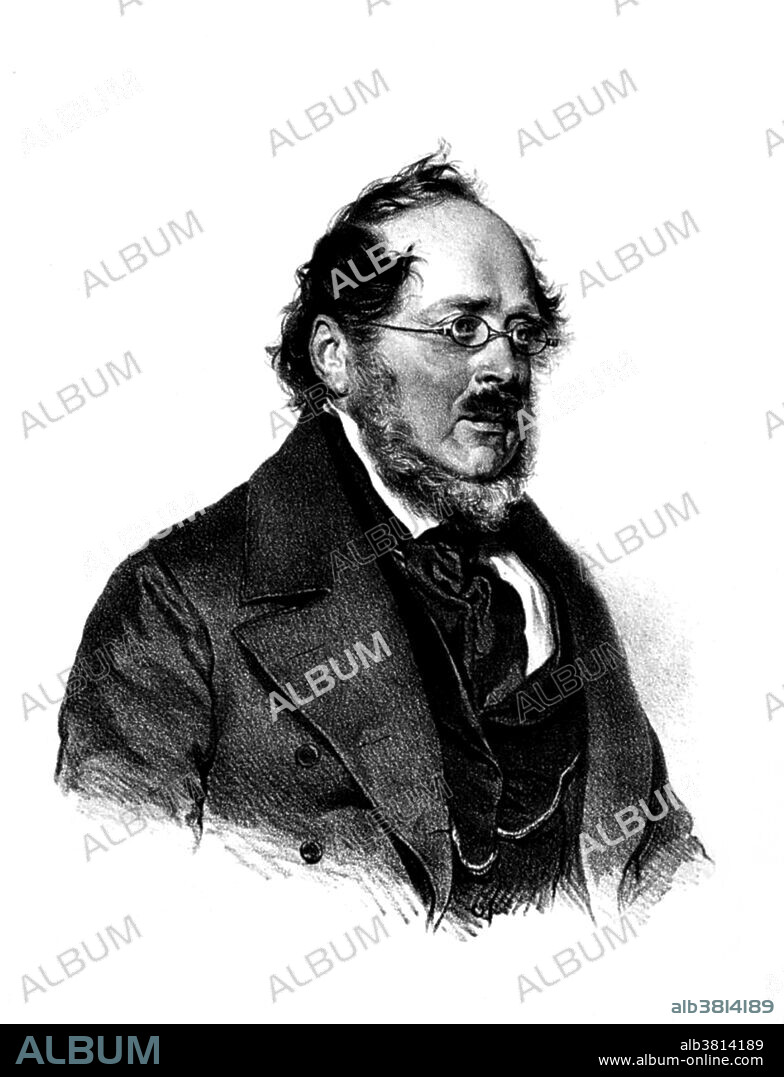alb3814189
Friedrich List, German Economist

|
Add to another lightbox |
|
Add to another lightbox |



Buy this image.
Select the use:

Title:
Friedrich List, German Economist
Caption:
Georg Friedrich List (August 6, 1789 - November 30, 1846) was a leading 19th century German economist who developed the "National System" or what some would call today the National System of Innovation. He was a forefather of the German historical school of economics, and considered the original European unity theorist whose ideas were the basis for the European Economic Community. In 1825, he emigrated to the US and settled in Pennsylvania, where he became an extensive landholder. He first engaged in farming, but soon switched to journalism and edited a German paper. The discovery of coal on some land which he had acquired made him financially independent. In 1830, he was appointed United States consul at Hamburg, but on his arrival in Europe in he found that the Senate had failed to confirm his appointment. He was a journalist in Paris from 1837 to 1843. Finally he returned home and established the Zollvereinsblatt in Augsburg, a newspaper in which he advocated the enlargement of the custom's union, and the organization of a national commercial system. His latter days were darkened by many misfortunes. He lost much of his American property in a financial crisis, debilitating ill health overtook him, and committed suicide in 1846 at the age of 57.
Category:
black & white • History: Personalities
Credit:
Album / Science Source / Smithsonian Institution Libraries
Releases:
Image size:
3300 x 4312 px | 40.7 MB
Print size:
27.9 x 36.5 cm | 11.0 x 14.4 in (300 dpi)
Keywords:
19TH CENTURY • ART • ARTWORK • BLACK & WHITE • BW • CELEBRITIES • CELEBRITY • CONSUL • CONSULATE • DRAWING • ECONOMIST • EUROPEA • EUROPEAN UNITY THEORIST • EUROPEAN • EUROPEANS • FAMOUS PEOPLE • FAMOUS • FIGURE • FRIEDRICH LIST • GERMAN • GERMANS • HISTORIC • HISTORICAL SCHOOL OF ECONOMICS • HISTORICAL • HISTORY • HISTORY: PERSONALITIES • ILLUSTRATION • ILLUSTRATIONS • ILUSTRATION • IMPORTANT • JOURNALIST • LANDOWNER • LIST • MALE • MAN • MEN • NATIONAL SYSTEM OF INNOVATION • NATIONAL SYSTEM • NOTABLE • PEOPLE • PERSON • PERSONALITIES • PERSONALITY • PORTAIT • PORTRAIT • POTRAIT • WELL-KNOWN


 Pinterest
Pinterest Twitter
Twitter Facebook
Facebook Copy link
Copy link Email
Email
